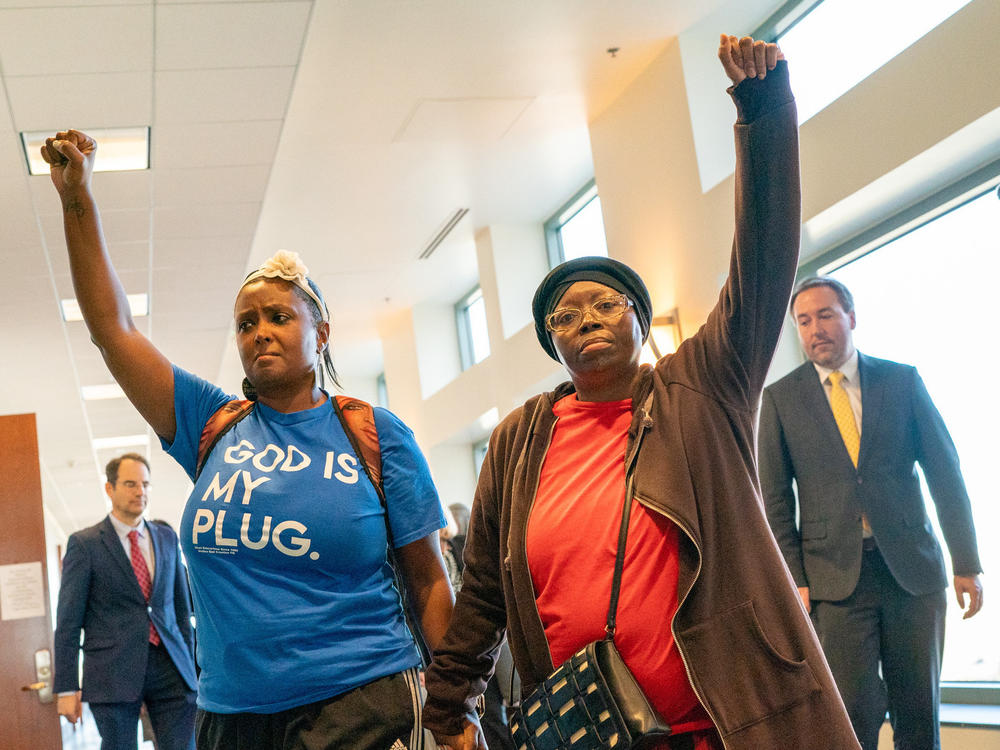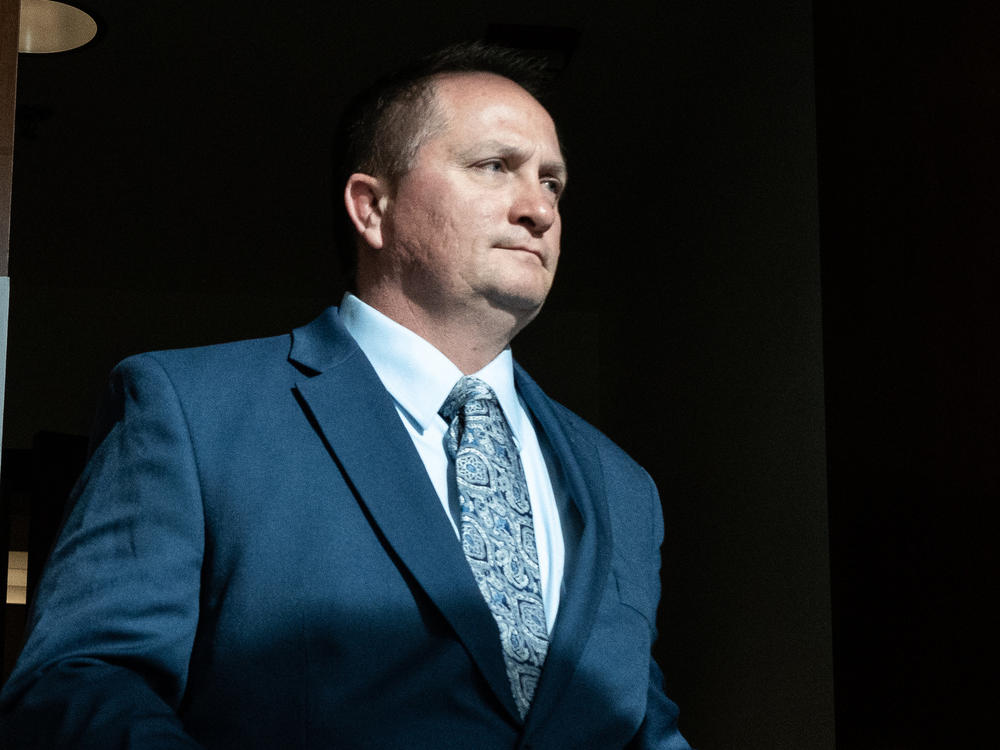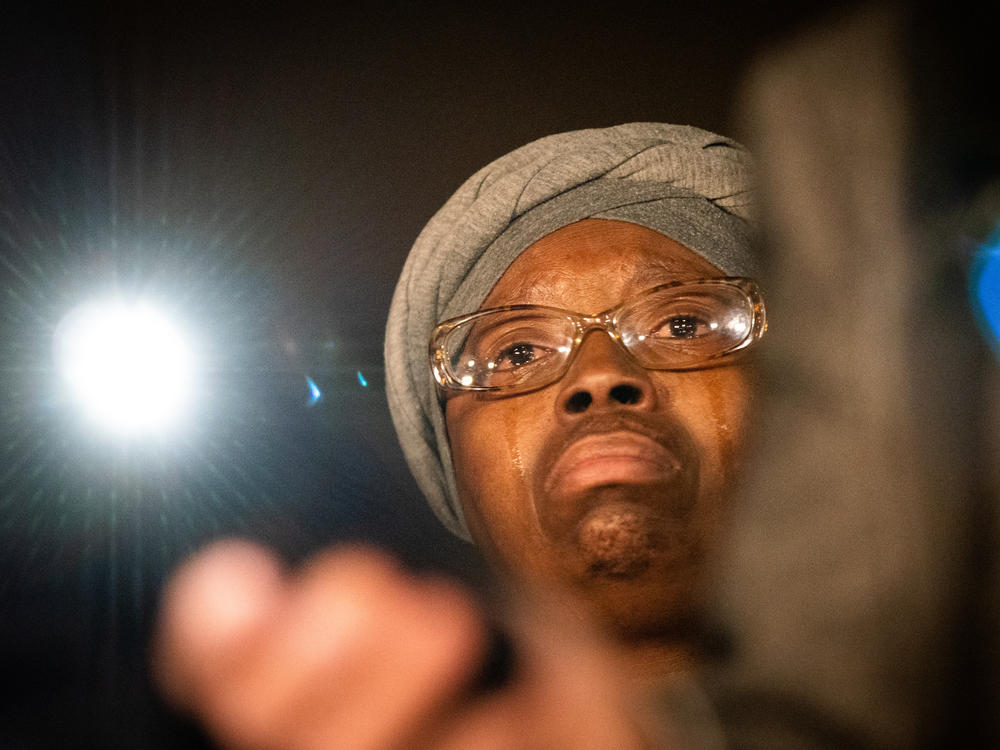Section Branding
Header Content
Reforms and heartbreak after final sentencing in Elijah McClain's death
Primary Content
Elijah McClain's death at the hands of suburban Denver police and paramedics was much in the news as Black Lives Matter protests happened in 2020.
Now, the last sentence for the three police officers and two paramedics involved the young Black man's death has been handed down.
On Friday, Aurora Fire department medic Jeremy Cooper, who administered the fatal dose of ketamine to McClain was sentenced to 14 months in jail and work release.
In a previous trial, Cooper's boss Peter Chinicac got five years in prison.
Two of the police officers were acquitted, but Officer Randy Roedema was sentenced to 14 months in jail, and four years probation.
"The life of Elijah McClain mattered and matters," Judge Mark Warner, who heard all the cases, said at Cooper's sentencing.
"It's almost unthinkable - a young man died for really no reason," Warner said. "It occurs to the court it didn't have to happen. It could have turned out much differently."
McClain's fatal encounter with police happened on the corner of Evergreen Avenue and Billings Street. The intersection is up against a highway and there's a huge concrete wall that lines one side of the street, with low-slung apartment buildings on the other side. There is an aging artificial flower memorial up against the highway barrier in memory of McClain.
Almost five years ago the 23 year-old massage therapist was walking home from a nearby convenience store after buying iced tea.
He didn't know that someone had reported a suspicious person.
Despite never being suspected of committing any crimes, police took the 145-pound McClain to the ground here just minutes after they first contacted him. He was unarmed, but given two carotid holds, and thrown to the grass several times. Then paramedics delivered a dose of a powerful sedative, and loaded him into an ambulance, handcuffed, where he lost his pulse and never recovered.
Sheneen McClain, Elijah's mother, heard those events recounted repeatedly for more than three months of the first responders' trials. A single woman who raised six kids almost completely by herself through years of poverty and homelessness, she had to watch video of her son's death repeatedly in court.
"Even though I know he's safe and he's protected and he's in his full power and spiritual form, the fact he is not here is what hurts, and the reason he's not here, that hurts," McClain said. "I cannot un-see those videos. I cannot un-know the evil of those who murdered my son. I know their heart."
Elijah McClain's death at the hands of police actually came nine months before George Floyd's. Initially, the local District Attorney didn't take the case up, and the officers and paramedics returned to work.
But, as police brutality protests unfolded across the country in 2020, Colorado Governor Jared Polis re-opened the case, appointing Attorney General Phil Weiser as special prosecutor. Weiser then brought felony charges.
Four years later, after Paramedic Jeremey Cooper was sentenced, Weiser said there has been some measure of justice for Elijah McClain. But -
"He was walking down the street, listening to music, carrying his iced tea and he ended up dead. There is nothing that could happen that would provide the sort of healing that Sheneen McClain and the community wants."
In 2020, Colorado lawmakers passed large scale police reforms.
They banned carotid choke holds, made it easier for individuals to sue police officers and strengthened the rules on uses of force. This year, they banned using the term "excited delirium" in law enforcement training and as a cause of death. First responders gave McClain a sedative because they had diagnosed him with excited delirium. That diagnosis has been largely discredited among medical professionals.
Searching for pearls
But, despite these reforms, community activists like Hashim Coates say more needs to be done.
"You know there's no guarantee that even with irritants every clam will produce a pearl," Coates said.
Coates stood by Sheneen McClain during the trials. He carries around the Aurora police chief's cell phone number and pushes for change around policing, especially in the Black community.
He says the reforms don't mean activists can let up
"We need to be harder, we need to be firmer in our response to APD," Coates said. "Not for Elijah's family but for the next unknown family that something is going to happen to because we haven't been harder."
Sheneen McClain says she, too will keep pushing for police reforms. But, she's skeptical that police culture can change completely.
"I don't think policing is better because there are still people or individuals who feel they've done nothing wrong.," she said. "If they don't acknowledge they've done nothing wrong then how can it get better?"
The trials have also resulted in changes among paramedics. Twenty-five Aurora fire fighters have now resigned from the paramedic part of their job for fear of criminal liability. That's about 10% of the workforce.
Everyone involved in the trials would say there is still immeasurable heartbreak and an unsatisfying amount of work to be done. Activists say it's still up to the community, and probably Sheneen McClain to keep the momentum for reform alive.



